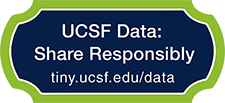 Multiple antiretroviral (ARV) regimens are effective at achieving HIV viral suppression but differ in pill burden, side effects, barriers to resistance, and impact on comorbidities. Current guidelines advocate for an individualized approach to ARV regimen selection, but synthesizing these modifying factors is complex and time-consuming. With more than half of HIV care nationwide provided by primary care physicians without formal training in HIV management, there exists a need for development of a clinical decision support and HIV education tool to enhance care of patients with HIV.
Multiple antiretroviral (ARV) regimens are effective at achieving HIV viral suppression but differ in pill burden, side effects, barriers to resistance, and impact on comorbidities. Current guidelines advocate for an individualized approach to ARV regimen selection, but synthesizing these modifying factors is complex and time-consuming. With more than half of HIV care nationwide provided by primary care physicians without formal training in HIV management, there exists a need for development of a clinical decision support and HIV education tool to enhance care of patients with HIV.
Our group has thus developed HIV-ASSIST (https://www.hivassist.com), an online, interactive, educational tool to inform clinical decision-making for ARV selection. The program uses a multiple-criteria decision-analysis framework to integrate clinical factors relevant to ARV selection (viral load, mutations, comorbidities, etc.) and generate a ranked list of recommended ARV regimens that are personalized to a particular patient. Algorithms are based on current guidelines and scientific principles and are iteratively refined and validated with input from experts at UCSF, Johns Hopkins, and the Brigham and Women's Hospital. It additionally presents supporting clinical evidence, dosage adjustments, drug-drug interactions, and provides a transparent step-by-step rationale of the algorithmic process. We have shown that HIV-ASSIST provides medically accurate recommendations in several clinical studies.
HIV-ASSIST serves as a proof of concept in providing real-time clinical decision support to enhance clinical care of patients. This approach may be particularly relevant for patients in rural areas or without access to specialty care. We see potential for a similar multiple-criteria decision-analysis framework to be applied towards many other diseases as a unique way for truly individualized, tailored decision-support. This method moves beyond simple flow diagrams or binary decision-trees and allows for synthesis of numerous clinical factors simultaneously. Finally, coupling educational content to decision-support enhances provider learning in addition to advancing patient care.
Slides: https://ucsf.box.com/s/i180u4cmh2awtff8wlaymgsicv7fniol (MyAccess login required)
HIV-ASSIST is developed for primary care physicians caring for patients with HIV. The tool, along with associated educational and medical content, is meant for clinicians with a basic knowledge of HIV (eg, viral load, antiretroviral therapy, etc). Otherwise, HIV-ASSIST is free to use and publicly available online at https://www.hivassist.com.
Manoj is a third year Internal Medicine resident at UCSF. His interests are at the intersection of clinical medicine and healthcare technology. He hopes to leverage technologies such as decision analysis algorithms and machine learning to find innovative solutions to optimize healthcare delivery and access. After residency, he plans on pursuing a fellowship in Pulmonary/Critical Care Medicine.